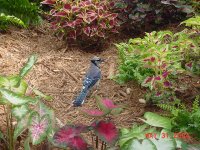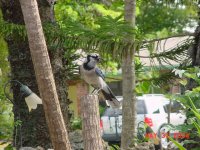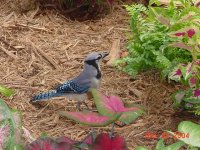backwoodshome
Member
This morning we got a chance to watch an adult Bluebird teaching its young to catch bugs right in front of our porch. The adult flew down and caught a bug in the gravel. I think it was a moth. The next thing I know there are three young Bluebirds surrounding him. He stunned the moth, set it back down on the ground and backed away from it. (I think it was a male adult, does that sound right?) The three young birds were pecking at it for a few seconds until one of them got a hold of it and flew up on our fence with it. We must be up to around ten Bluebirds now. They seem to be everywhere! They sure are fun to watch.
Right after the Bluebird lesson was over. I'm talkin within about a minute. A big Redtailed Hawk swooped out of a tree into the grass in our pasture. He must have missed whatever he was after because he flew back up into the tree emty handed.
I thought we were watching "Wild Kingdom"! LOL
Kevin
Right after the Bluebird lesson was over. I'm talkin within about a minute. A big Redtailed Hawk swooped out of a tree into the grass in our pasture. He must have missed whatever he was after because he flew back up into the tree emty handed.
I thought we were watching "Wild Kingdom"! LOL
Kevin






